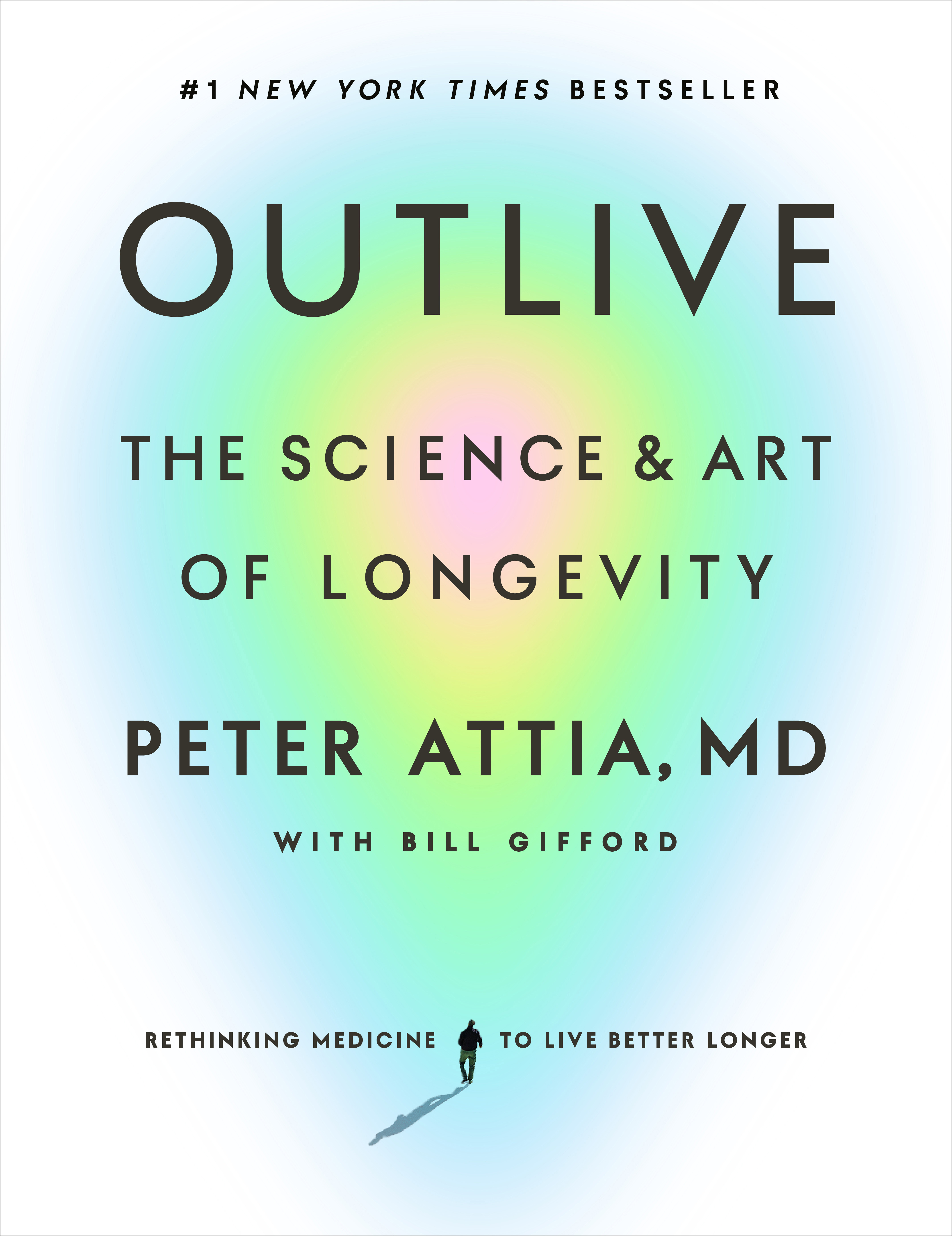
Outlive: The Science & Art of Longevity
Peter Attia, Bill Gifford
About the Author

Peter Attia
Questions & Answers
The "Long Game" refers to the concept of extending both lifespan and healthspan, focusing on living longer and healthier for a longer period. It contrasts with the traditional approach of merely extending lifespan without improving healthspan, which often results in a "Marginal Decade" of declining health before death. The Long Game emphasizes proactive strategies like exercise, nutrition, sleep, and emotional health to maintain and improve physical and cognitive function throughout life. By addressing the root causes of chronic diseases and focusing on prevention, the Long Game aims to delay or avoid age-related decline, enabling individuals to live longer and enjoy a higher quality of life.
The book defines the "Marginal Decade" as the period of life, typically in one's seventies and eighties, characterized by diminished health and cognitive function, leading to a reduced quality of life. It contrasts this with the "Bonus Decade," a period of continued health and vitality well into old age.
To avoid the Marginal Decade, the book suggests a comprehensive strategy focusing on:
- Longevity Alpha: Implementing lifestyle changes that minimize risks and promote longevity.
- Understanding Genetics: Learning about genetic predispositions and how to mitigate them.
- Medicine 3.0: Adopting a proactive approach to health, focusing on prevention rather than treatment.
- Exercise: Engaging in regular physical activity, emphasizing aerobic efficiency, strength, and stability.
- Nutritional Biochemistry: Focusing on the quality of food and its impact on metabolism.
- Sleep: Prioritizing sleep quality and quantity.
- Emotional Health: Addressing emotional well-being to maintain overall health.
In the book, risk plays a crucial role in longevity, emphasizing a proactive approach rather than the traditional reactive one. It differs from traditional medicine by focusing on long-term risk assessment and prevention. The book argues that Medicine 3.0, the new paradigm, requires patients to be informed and actively participate in their health management. This involves understanding and managing risks like cardiovascular disease, cancer, and neurodegenerative diseases through lifestyle changes, such as exercise, nutrition, sleep, and emotional health. Unlike Medicine 2.0, which often waits for disease to manifest before intervention, Medicine 3.0 aims to prevent chronic diseases and improve healthspan by addressing risks early and continuously. This shift from a disease-focused to a risk-focused approach is central to the book's longevity strategy.
The book integrates various lifestyle aspects into a longevity strategy by emphasizing a comprehensive approach that encompasses exercise, nutrition, sleep, and emotional health. It argues for a shift from Medicine 2.0's reactive, disease-focused approach to Medicine 3.0, which prioritizes prevention and risk reduction.
Exercise is highlighted as the most potent longevity "drug," with a focus on components like strength, stability, and aerobic efficiency. Nutrition is approached through the lens of nutritional biochemistry, focusing on caloric intake, macronutrient balance, and the impact of specific nutrients on metabolism and health. Sleep is recognized for its crucial role in cognitive function, memory, and emotional well-being. Emotional health is also addressed, emphasizing the impact of emotional suffering on overall health. The book advocates for a personalized, evidence-informed approach, allowing individuals to tailor their strategies based on their unique risk factors and goals.
The "Centenarian Decathlon" is a framework developed to organize personal longevity goals, particularly focusing on the later decades of life. It involves selecting ten or more physical tasks that one aims to perform well into old age, such as hiking, lifting, or climbing stairs. This list, or "Decathlon," serves as a personalized template for training and maintaining fitness. By setting specific goals, individuals can tailor their exercise routines to ensure they maintain the physical capabilities needed for daily activities and personal interests. The concept encourages a holistic approach to fitness, emphasizing cardiovascular efficiency, strength, stability, and injury prevention, ultimately aiming to emulate the longevity and healthspan of centenarians.